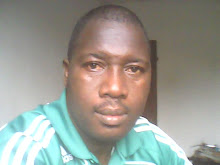Most persons that are fortunate
to hold prominent public offices would not accord respect to the judiciary
until they come down from their Olympian Height and are hunted by their own
shadows. They would sack top ranking judicial officers without recourse to due
process. In most cases, they even choose court orders to obey or ignore. Just
as the elders would always say, “power and money put together, cannot buy the
future.” This is the reason why even the rich sometimes cry, run, or hide.
News of the former governor of
Kwara State, Senator Bukola Saraki attempting to use the court to stop the police
from inviting him to assist in their investigation of an alleged N21b loan scam
is quite unfortunate. This writer is not of the opinion that the senator
representing Kwara Central is guilty of the issue for which the police invited him.
He is rather worried about the seeming introduction of a novelty that will make
the routine police investigation of suspected crime very cumbersome. More than
that, this methodology adopted by Senator Saraki will slow down the war against
graft in a country where corruption has destroyed the foundation of national
unity and socio-economic development.
While not dismissing the fact
that Senator Saraki has all the rights to approach the court to protect his
fundamental rights if it is being abused, he is equally under obligation to
help the police carry out their lawful duties without impediment. He should not
be tempted to set a bad precedence that will hinder the battle against graft.
If I were in the shoes of Senator
Saraki, I will cooperate with the police to unravel the mystery surrounding Joy
Petroleum Ltd and the alleged N21b loan scam. He should see this as his own little
contribution towards fighting the growing tide of corruption in the country.
If I were indeed Senator Saraki,
I would promptly make myself available to the police, irrespective of whether or
not I have any relationship with Joy Petroleum Ltd- the company at the center
of the investigation. The issue of the police not informing him of the reasons
behind his invitation should be sacrificed to help free truth from deceit and
concealment.
Senator Saraki should be reminded
that the action of one innocent man will sound louder than the voices of a
thousand guilty persons. His quick response to the invitation by the police
would have definitely saved him the embarrassment of being declared wanted by
the police. This ugly development has not only opened a sad page for democracy
in Nigeria; it has also stained the culture of integrity in public
service.
Many observers and commentators of
contemporary issues have condemned Senator Saraki’s approach to the matter and
suggested that he responds to the police invitation without delay. From all
indication, his invitation by the police is just to assist in the investigation
of the alleged N21b loan scam involving Joy Petroleum Ltd. Nobody has accused
him of anything and therefore remains innocent. It is said that a clear conscience
fears no accusation.
Secondly, Senator Saraki should
use the opportunity of the police invitation to flaunt his integrity and shame
his “detractors”, if there are any in this case. Another reason Senator Saraki
should respond quickly to the police invitation is the sacred fact that he is
senator of the federal republic. He is supposed to live above board. To live
above board also means doing nothing to stop the law from moving about freely
in search of the truth.
Let Senator Saraki discontinue his
attempt to ask the court to determine if he could be invited by the police to
assist in investigating a matter in which he is not linked and for which no
definite allegation has been made against him. He should go and tell the police
what he knows and do not know about the matter in question. Even if he has no
confidence in the police, the courts will come to his rescue when if it amounts
to that. Let him just do the simple, honourable, and right thing.
Nigerians should not be surprised
if his political beliefs, opinions, and alignments are thrown up as the reason
for his invitation by the police. It has become fashionable for people to
abandon facts and hold on to sentiments each time they are accused of wrong
doing.
Already, some sympathizers,
notably Save Nigeria Group (SNG) and Conference of Nigerian Political Parties
(CNPP) have gone to town with the theory that Senator Saraki is being hunted by
members of the “cabal” that benefited from the fuel subsidy scheme. They argue
that it was Saraki that moved the motion to investigate the fuel subsidy
management scheme on the 16th of September, 2011. While this is
possible, should that be enough reason for a suspected criminal matter not to
be investigated? Let us not play politics with sensitive issues like this. This
was how the seeds of corruption were watered in the early 60s. Just as the SNG
and CNPP are doing, individuals and organizations came out openly to whitewash
evil with shallow and narrow sentiments. Today, Nigeria has become a whited
sepulcher: beautiful from outside but stinking with corpses inside. I am not
surprised that both the CNPP and SNG are losing so much respect in recent
times. It is not unconnected with their approach to critical nation issues. We
cannot continue to sacrifice justice on the laps of shallow and narrow
sentiments.
